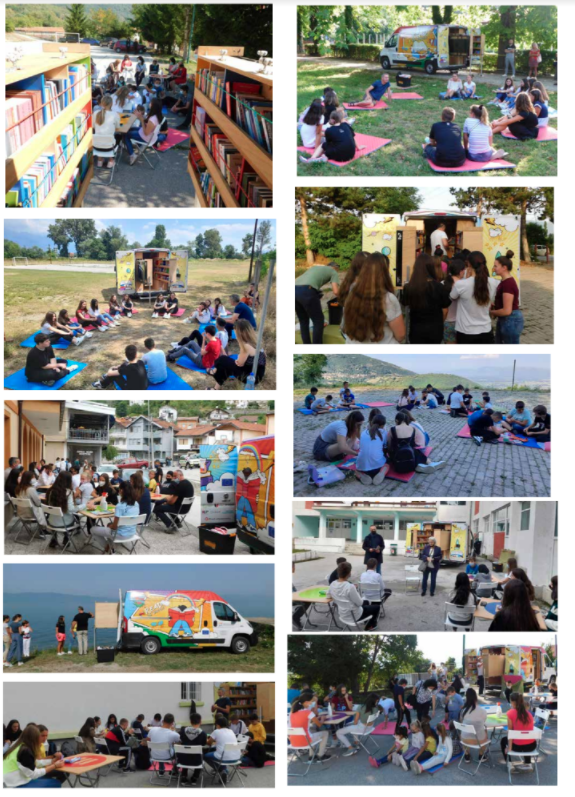
This issue of our journal will be especially dedicated to the project READ – Regional Network for Cultural Diversity – funded by the European Commission and implemented under the leadership of Goethe Institut, Skopje, in collaboration with five partner organizations: Instituti i Librit dhe i Promocionit (Albania), Krokodil (Serbia), Kalem Culture Association (Turkey), LOJA Center for Balkan Cooperation (North Macedonia),
and Qendra Multimedia (Kosovo). As it can be seen, the space of the action is Balkans. It shall be a contribution to intercultural recognition and to reconciliation by opening new channels of communication for independent cultural organizations, offering them networking opportunities away from the political stage. It is a novelty for the region.
The project READ started this year, in the difficult conditions of the pandemics, and it will continue until 2024. It consists in several kinds of activities. One of them is that of the
residency of writers, artists and translators from the Balkans in other countries of the region, being hosted by the above mention partner organizations for a period of one month. In total, there are ten such residents each year of the project, while in 2021 an independent committee selected the ten residents among more than 120 applicants. Another activity is that of the literary international festivals, with a prominent participation of Balkan authors. This same year two festivals took place, one in Prishtina, organized by Qendra Multimedia, and one in Tirana, organized by Instituti i Librit dhe i Promocionit. The objective is to organize ten festivals until the end of the project.
A third kind of activity is “READ on wheels”, which consists in a regional mobile library, a bus stocked with books and other content from the project partners. It is a multicultural and multilingual mobile library that will tour through North Macedonia, Kosovo, Serbia, Albania and Turkey during a period of three years, with special focus on schools and libraries. During 2021 it is travelling through North Macedonia. The idea of the mobile library is based on the long-standing experience of Goethe Institut with running library and culture buses across different countries, including France, Egypt, Lebanon, Jordan, Belarus, etc. Like the residency program and the literary festivals, “READ on wheels” aims to promote intercultural reading skills and, therefore, the recognition and empathy towards the Other, but with the specific difference of providing access to reading and cultural activity to young people in small and hard-to-reach communities where such opportunities are either rare or completely non-existent.
And, last but not least, there is still another kind of activity, or should we better say it in plural, activities, becuase it is multiple and is intended to have a more especially pervasive effect: each of the five partners of READ provides appropriate financial support, by open calls, to other organizations for multilingual and intercultural projects, with a preference to youth organizations. The objective is to support ninety projects over the period of three years. It gives to READ a new dimension of capillarity. All these, in as much as they were implemented during 2021, and they were impressively so, is presented in this issue of our journal.
This publication was made possible by the financial support of AMSHC. Its conent is responsibility of the authors, and does not reflect necessarily the opinion of AMSHC.
It was also supported by a grant from the European Cultural Foundation
